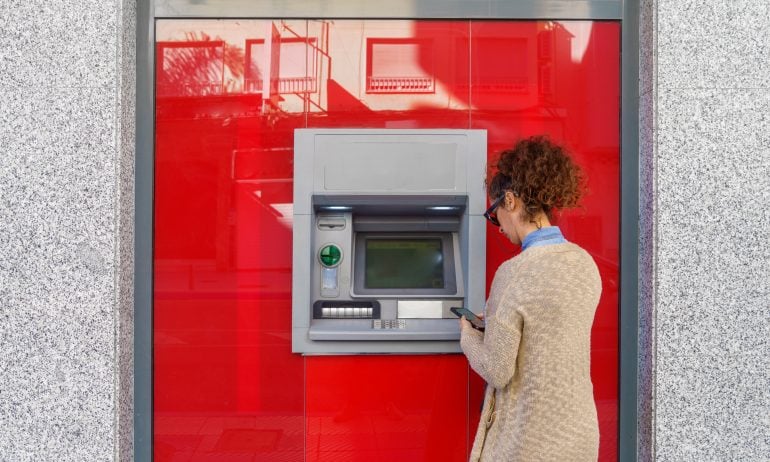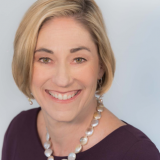Pros and Cons of Keeping Multiple Bank Accounts at Different Banks

Many or all of the products featured here are from our partners who compensate us. This influences which products we write about and where and how the product appears on a page. However, this does not influence our evaluations. Our opinions are our own. Here is a list of our partners and here's how we make money.
You probably heard about the 2023 bank failures, which spurred concerns for some consumers about whether their money is safe in the bank. You may also have noticed that interest rates on savings accounts are higher than they’ve been in years and that banks are offering more features and services — such as ATM fee reimbursement and early direct deposit — to further attract new customers.
The good news is that if you have less than $250,000, then you’re covered by insurance — through the Federal Deposit Insurance Corp. (FDIC) or the credit union equivalent, the National Credit Union Administration (NCUA). If you have more than $250,000 at one institution, you may still be covered by federal insurance, but if not, or if you just want to take advantage of high interest rates or other perks, you may want to consider opening accounts at different banks.
Here are some of the pros, cons and considerations that come with keeping accounts open at multiple banks.
How many bank accounts should I have?
It can be beneficial to have multiple bank accounts. At minimum, it’s a good idea to have a checking account (for your spending money and for paying bills) and a savings account. If you want to save for the short term and the long term, or have different savings goals, consider setting up multiple savings accounts.
» MORE: See the best banks for multiple savings accounts
Why is it good to have multiple bank accounts at different banks?
You can mix and match the best features of different institutions. For example, maybe you want a checking account at a bank that has ATM fee reimbursements or two-day early direct deposit, and you want to keep other cash at your locally owned credit union that has branches near you and high yields on its savings accounts or certificates of deposit.
You can have more of your money covered by federal insurance. By spreading your accounts around to different federally insured banks and credit unions, you can get access to having more of your money insured by the NCUA or the FDIC.
You can better manage your money and build your savings. By keeping your spending money at one bank or credit union and your savings at another, you can make it easier to avoid dipping into savings. Having your different funds separate can make it at least a little harder to access your emergency and long-term savings when you might be tempted to use those funds for something else.
» SEE: The best high-yield online savings accounts with consistently high rates
⏰ Limited-time offer
at SoFi Bank, N.A., Member FDIC
Don’t miss out on a bigger bonus
Get a NerdWallet-exclusive bonus of up to $400 when you open an account and hit $5,000 in direct deposits within 25 days after your first one. That’s $100 more than SoFi’s normal $300 bonus! Select "Learn More" to get started. Expires 4/22/24. Terms apply.
Why is it bad to have multiple bank accounts at different banks?
Before you decide, consider some of the reasons it might be bad to have multiple bank accounts at different financial institutions.
It may be harder to keep track of different account details. The more accounts you have, the harder it can be to keep track of their details and requirements. Unless you keep careful and updated records, it might be challenging to keep track of usernames, passwords and details such as beneficiaries and scheduled transfers or withdrawals.
» MORE: Get guidance on how many savings accounts you should have
You could incur costs if you don’t meet certain requirements. Some banks have minimum balance, spending or direct deposit requirements on their accounts, and you could trigger a fee if you don’t meet those conditions.
» SEE: Learn six ways to clean up your bank accounts
After the initial period, you might not continue to benefit from high rates. If you open a new account at a bank because you’re chasing high interest rates, your bank might not necessarily have those high rates forever. Read up on the account terms and conditions and understand how they work to ensure you’ll get what you expect.
» COMPARE: The best places to save money and earn interest
Does FDIC insurance cover multiple accounts at the same bank?
Insurance from the FDIC and the NCUA typically covers up to $250,000 per depositor per ownership category, such as a single account, retirement account or trust account. Joint accounts are insured up to $250,000 per person, so if an account is co-owned by two people, the full amount could be covered up to $500,000.
» LEARN: All about FDIC insurance ownership categories
What should I do if I want to insure more than $250,000?
There are several ways to insure more than the FDIC insurance limit of $250,000. Some ways you might consider are adding a joint account owner, opening an account that’s a different ownership category, opening a cash management account with a higher insurance limit or splitting your money among different banks.
Whether you want to better insure your money or simply want to cherry-pick the best features of different banks, opening accounts at multiple banks is a solution that could benefit you as long as you’re willing to manage the account upkeep.
» Get a cash bonus for opening a new account: See the best bank promotions
On a similar note...
Find a better savings account
See NerdWallet's picks for the best high-yield online savings accounts.
⏰ Limited-time offer
4.60%
With $0 min. balance for APY
$400
Limited-time offer
Up to $300 cash and $100 in rewards points. Terms apply.




